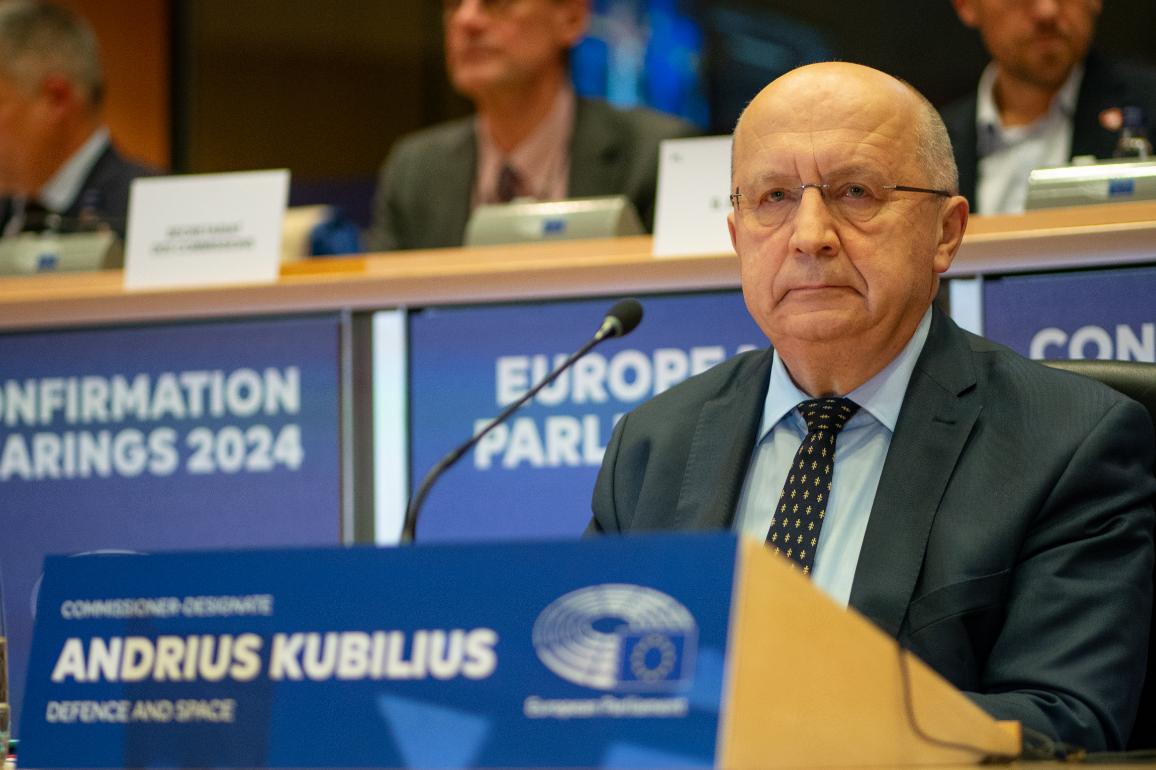The Foreign Affairs and Industry, Research and Energy committees questioned Andrius Kubilius, Lithuanian candidate for the Defence and Space portfolio, on Wednesday.
In his introductory statement, Mr Kubilius pointed to the urgent and long-term challenges facing European defence, including existential threats such as conventional warfare, hybrid attacks and the militarisation of space. He also highlighted significant underinvestment in defence, a highly fragmented European defence equipment market and strategic rivals such as China and Russia “outpacing us” on defence spending. To address these challenges, he urged MEPs to support his efforts to bring a genuine European Defence Union to life. The EU, without competing with NATO, needs to help develop the capabilities and resources needed for the implementation of NATO military deterrence and defence plans.
Should he be confirmed, Mr Kubilius committed to presenting a white paper on the future of European defence within his first 100 days in office. The aim is to frame a new approach to defence and identify investment needs to deliver full-spectrum European defence capabilities. He also talked about the need to “spend more, spend better, spend together and spend European” on defence, scaling up EU defence equipment production and demand, leveraging the EU budget to deliver on key urgent EU defence priorities and facilitating defence purchasing across borders. “We must achieve a true single market for defence”, he said.
On space, Mr Kubilius said Europe must be part of the “space revolution”, and pointed to the need to continue advancing EU space flagship programmes, working on ensuring European autonomous access to space, tabling a new EU space law and supporting the competitiveness of the EU space industry.
Defence, resilience and preparedness
MEPs argued that defence, resilience and preparedness should also be understood in a context of crises like the pandemic or the recent tragic floods in Spain. They asked about ways to establish incentives for member states to spend more on defence, and on ways to better finance the ramp-up of production capacities under the European Defence Industry Programme (EDIP). Mr Kubilius responded that preparedness, while expensive, is cheaper than facing a crisis without being prepared. On financing, he believes that the European Investment Bank's lending policies can evolve, and that the next multiannual financial framework should have larger spending lines for defence and space. He added that a small increase to member state defence budgets would already make a significant difference at EU level.
Spend more on defence "not because of Trump, but because of Putin"
Many MEPs questioned the Commissioner-designate on whether and how EU policy should prioritise the purchase of European defence equipment. Mr Kubilius underlined the long-term necessity of having a strong and competitive industrial base on the continent and that "we need to spend more but not because of Trump, because of Putin".
Some MEPs voiced concerns that an EU army would replace national ones. Mr Kubilius said that the EU is about shared sovereignty and responsibility, and is not to replace member states but to help them achieve together what a single country would not be able to.
Press point
At the end of the hearing, the Chairs of the Foreign Affairs Committee, David McAllister (EPP, Germany), and of the Industry, Research and Energy Committee, Borys Budka (EPP, Poland), held a press point outside the meeting room. You can watch it here.
Next steps
The chairs and political group coordinators will meet without delay to assess the performance and qualification of the Commissioner-designate.
Based on the committee recommendations, the Conference of Presidents (EP President Metsola and political group chairs) is set to conduct the final evaluation and declare the hearings closed on 21 November. Once the Conference of Presidents declares all hearings closed, the evaluation letters will be published.
The election by MEPs of the full college of Commissioners (by a majority of the votes cast, by roll-call) is currently scheduled to take place during the 25-28 November plenary session in Strasbourg.
Обратна връзка:
-
Viktor ALMQVIST
Press Officer -
Baptiste CHATAIN
Press Officer -
Gediminas VILKAS
Press Officer
